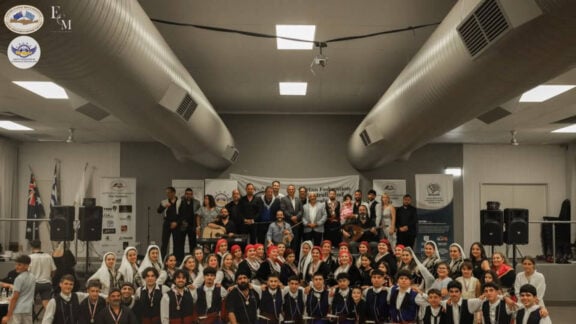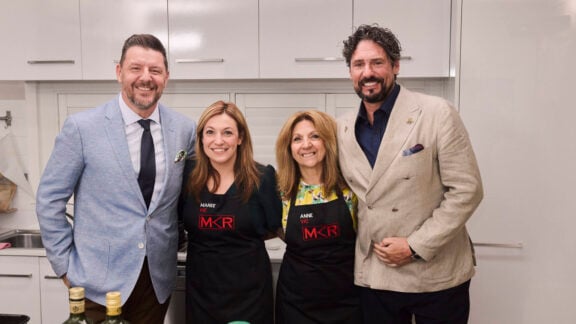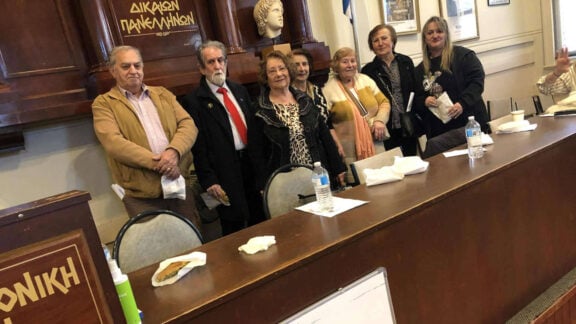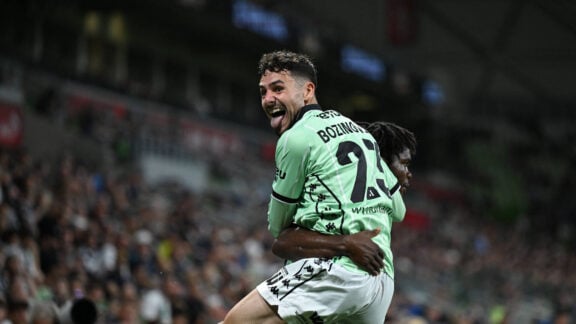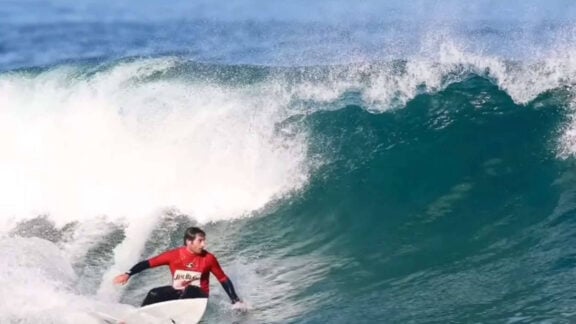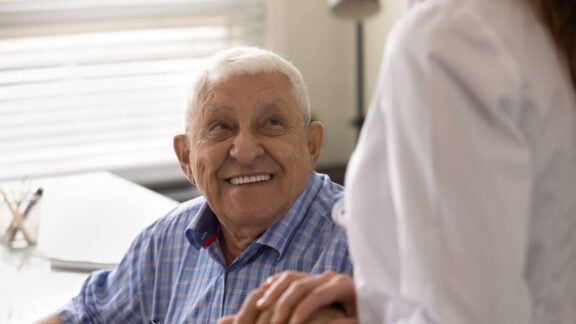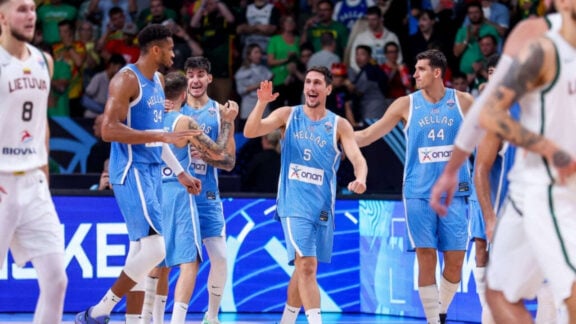More than a decade on and the Greek economic crisis continues, recent figures promising little hope for relief anytime soon, with the nation’s foreign debt on the rise.
Pensions have been impacted, business owners forced to shut up shop, wages cut, and others faced with the heartbreaking decision to leave friends and family behind for opportunities abroad.
But as the country’s decision makers are distracted in board rooms, they’re missing something: it’s not all about crunching numbers.
As future prospects dwindle, so too does emotional instability. And what does that mean for the youth? What impact is the crisis having on their development as they grow amid austerity and economic downturn?
These are the questions Greek Canadian filmmaker Panayioti Yannitsos is seeking to address in his latest documentary.
Together with three other international filmmakers, the 24-year-old has set out to self-fund the project, which has seen them spend three weeks in Greece talking with students, anarchists, professors, taxi drivers, the homeless and various others with insight on the matter.
Since then, however, the filmmaker has realised the immensity of the project, and so together with his crew has launched an online GoFundMe campaign, which has so far raised over $3,000; an effort that has warmed his heart.
“To everyone who has reached into their pockets, whether it be $10 or $200, you have contributed to a cause that will change the global perception of Greece forever,” Yannitsos responded.
“As filmmakers, we hold in our hands a very powerful tool, and that is the freedom to speak loudly to the international community and induce change.”
Born in the Canadian province of Saskatchewan, Yannitsos has a strong connection to Greece, fostered through his grandparents, who immigrated to Canada in the late 1950s.
Inspired by his mother’s work as a theatre director, actress and educator, he developed a passion from a young age for storytelling, which led him to pursue a diploma in digital film and video at the Art Institute of Vancouver.
With him fresh off the plane in Canada, Neos Kosmos reached out to Panayioti to find out more about his worthy project.

What inspired you to make a film about the identity crisis of Greece’s youth?
Very simply, as a 24-year-old young man of Greek heritage, I empathised with and related to the youth of the country. I saw the frustration and anger many young Greeks carried and I realised it was due in part to the fact that no one was listening to them.
I have realised over the years that despite so many of Greece’s mainstream issues of austerity, economic downturn, refugees, and corruption within the establishment, I came to the conclusion that this identity crisis many Greeks carried was arguably the most poisonous of any issue, and was in fact the root cause of many problems in the country.
This identity crisis is not reserved only for the youth, but I decided to focus on them because ultimately it will soon become their burden to bring Greece back into the light. They hold the keys to the future and it’s important we listen to what they have to say and what their vision of the future is.
Who else is involved in the project?
I am producing, directing, and editing the project. Both my cinematographer, Izaiah Kane, and sound designer, James Spittal, came with me from Canada to make the film. We also had a secondary camera operator named Stef Hoffer join us from the Netherlands. Beyond the filmmaking itself, we received help from so many local Greeks and I thank them from the bottom of my heart for their cooperation and hospitality.

When did you arrive in Greece to start filming? Do you have plans to return to Greece for the project?
We began filming on 10 August and wrapped production on 22 August. I am currently organising to return to Greece to film some additional scenes, including a potential interview with Prime Minister Alexis Tsipras.
So far, who have you spoken with? Whose perspectives are you showing through the film?
We have spoken to youth anarchists in the neighbourhood of Exarcheia, students of psychology and theology from the University of Athens, professors from the University of Athens, doctors, taxi cab drivers, fishermen, athletes, [and] the homeless on the streets of Omonoia. We have even been in contact with world-famous composer Mikis Theodorakis who, due to his health, could not appear on camera but is willing to write us a letter detailing his perspective on youth identity.
We spent an entire week documenting a youth development camp in the village of Kiveri run by Canadian Greek John Karkalatos who, for the past 16 years, has used the game of basketball as a means to instil values of teamwork, self-worth, and national pride in the youth of the village. We spoke with over a dozen different kids, between the ages of 8 and 24, right there in the village. Imagine all of these perspectives intertwined. We are rebuilding the bridge of communication that I feel has been missing for all of these years. And to reiterate, I fully expect to speak with Prime Minister Alexis Tsipras.
What response has the project received thus far?
When we were in the anarchist neighbourhood of Exarcheia, I’ll be honest, many residents of that community did not appreciate our cameras. At one point, I received a call telling me that 10 members of the community had slung together 25 Molotov cocktails with the intention of bombing us. There is so much anger, frustration, and lack of trust in some of these neighbourhoods where youth anarchy is prevalent. It isn’t their fault. For so long they have been oppressed and their opinions unheard. That is the perfect recipe for cultivating civil unrest and I hope to reverse some of that hopelessness through this film.
On the other hand, in virtually every other community, we were welcomed with open arms, specifically in the village of Kiveri and at John’s camp. I can’t even begin to express my gratitude for how we were embraced. And now we are running a GoFundMe campaign to recoup our flight and equipment costs, which we had to pay out of our own pockets. The support from the international community, and specifically from so many of our family and friends, has been amazing so far.

A young Greek volunteer at the City Plaza refugee hotel in downtown Athens.
Have you noticed similar opinions emerging about the Greek youth? What is the general sentiment?
One thing I found so astonishing was the level of accountability from the older generations. Whether it be the 60-year-old taxi cab driver or the 70-year-old fisherman, they each apologised to me on behalf of their generations. They acknowledged how this nation has been mishandled for so many decades and had a full understanding of the mess the Greek youth of today have inherited. They understand why there is so much anger, frustration and hopelessness, but are begging for the young Greeks of today to unify in a way they never could. Many definitely condemn the anarchist mentality and often refer to those kids as criminals. But many in the country acknowledge the fact that we have a very strong post-secondary institution in Greece that is pushing out some brilliant young minds. The intelligence and creativity of the Greek youth has never been in question. What is in question is their ability to cultivate those talents, re-invest in their country, and do so while working together with the rest of the nation. If that happens, Greece will rise again as it always has.

Why do you think it’s important to tell this story?
For the immediate future, and as much as it pains me, Greece is in for some tough times. Amid this chaos there lies a silver lining, which are the 10- and 20-year-olds growing up in this nation in search of who they will become and how they will contribute to the world around them. I made this film so that they understand that there are people out there who care about what they have to say, their issues, their ideas, and the Greece they imagine for the future. We have to give these kids our vote of confidence. We have to back them and put weight behind their opinions. I am doing so in the best way I know how and that is to put them on camera and share their voice with the international community.
To help make this film on Greek youth identity a reality, visit www.gofundme.com/2nxzzs5k


